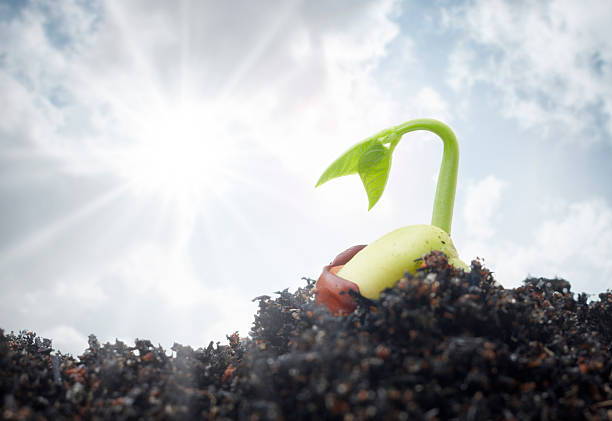Seeds of Opportunity: The African Growth Series
January 2024 | Issue 3
In this week's issue, you will learn more about:
- AFRICA TREND: Rising Identity Fraud
- AFRICA OPPORTUNITY: Is Zambia a trendsetter for Capital Market Growth?
- AFRICA OPPORTUNITY: Zambia and DRC Join Forces for EV Revolution
- AFRICA OPPORTUNITY: Growth Hub for the Internet of Things (IoT)
AFRICA TREND: Rising Identity Fraud
Africa’s escalating identity fraud crisis is its hidden heist. As the population grows and more people use technology, the exposure to identity theft rises.
On January 24, 2024, Smile ID (formerly Smile Identity), a leading identity verification service in Africa, released its 2024 Digital Identity Fraud in Africa report. The report, a first for the continent, unveils a disturbing trend: a consistent rise in identity fraud over the past four years, with document and biometric fraud rates hitting record highs in late 2023. These fraudulent activities, increasingly sophisticated and leaning towards biometric fraud, peaking at 13% in Q4 2023, impose hefty costs on businesses and erode trust in digital services. More sophisticated methods, such as information spoofing, accounted for almost 40% of identity fraud.
Identity fraud exists at the personal, institutional, and business levels. With businesses that rely on biometric verification are four times safer than their counterparts relying on text verification alone. Regarding biometric verification, facial recognition can be more resilient to fraud than fingerprints because of various aspects of accessibility. As Africa’s population continues to grow and adopt more technology, cybercrime will follow. Hence, there is a need to bolster fraud prevention measures and secure Africa's digital and economic future. Africa holds a lot of opportunity to tackle this rising trend.

AFRICA OPPORTUNITY: Is Zambia a trendsetter for Capital Market Growth?
Zambia has just released the country’s first green bond to the Lusaka Securities Exchange, hoping to catalyse growth in the investment market.
A green bond seeks to secure funding for sustainable projects in order to boost investment within Zambia’s economy whilst upholding environmental standards. This ensures that the conservation and protection of the country’s natural environment is included in economic growth decision-making.
This is a huge step in the right direction for Zambia, which has shown its commitment to renewable practices in its substantial use of renewable energy sources. Between 2013 and 2023, Zambia’s renewable energy consumption hovered around 86%, meaning that only 14% of the electricity produced came from non-renewable sources. This ranks the nation fifth in the leading countries in renewable electricity production. Producing 13.9 terawatt hours per year, Zambia falls less than four terawatt hours behind the top producer, Egypt, at 17.89 terawatt hours.
This does not discount the significant issues that Zambia faces in the form of high-interest rates and investor uncertainty but does indeed lay the groundwork for positive progress in the future.

AFRICA OPPORTUNITY: Zambia and DRC Join Forces for EV Revolution
Zambia and the Democratic Republic of Congo (DRC) are set to revolutionize their economies by establishing Special Economic Zones (SEZs) for electric vehicle (EV) production after an agreement was signed with African Export-Import Bank (Afreximbank) and the United Nations Economic Commission for Africa in 2023. With a combined 70% of global cobalt supply and 13% of global copper supply, these countries are poised to become key players in the EV industry.
Key investments in Zambia's Copperbelt Energy Corporation Plc and the recent launch of the Lupiya neobank and Union54 (YC S21)'s ChitChat platform demonstrate the potential for growth in the region. Meanwhile, the DRC's Nuru solar startup recently raised USD 40 million in Series B funding to develop three solar mini-grids in Goma, Kindu, and Bunia, further supporting the region's green initiatives.

AFRICA OPPORTUNITY: Growth Hub for the Internet of Things (IoT)
In 1999, a British technologist, Kevin Ashton coined the term "Internet of Things" (IoT) to describe a network connecting people and objects. The IoT has now developed into a vast network of connected objects that collect and analyse data, and autonomously perform tasks by leveraging new technologies like AI and 5G. Africa is experiencing the benefits of the IoT wave, and its revenue in the IoT market is expected to maintain a high and steady growth rate, with a Compound Annual Growth Rate (CAGR) of 14.7% expected from 2024 to 2028. The forecasted total market revenue across the continent will reach US$239.2 billion by 2028. In 2024, the automotive IoT sector is expected to dominate most of the various segments within the IoT market, with a projected market volume of US$70.6 billion.
Frost & Sullivan Africa predicts that cybersecurity strategy to protect IoT will be the biggest growth opportunity globally for the IoT market in 2024. Insights from Frost & Sullivan's Global IT Decision Makers Survey, conducted in the fourth quarter of 2023 with over 680 participating decision makers globally, show that cybersecurity remains a big challenge for the industry. As more data is collected and transmitted from one device to another and stored in the cloud, the challenge of securing the data and ensuring privacy is more present than ever. The number of IoT cyber-attacks worldwide amounted to over 112 million in 2022. In 2024, Frost & Sullivan survey results suggest that 36% of organisations will adopt IoT security hardware, and 33% of businesses will incorporate security software into their Industrial IoT infrastructure.
As the IoT market continues to expand and evolve, Africa holds immense potential for growth and innovation. With its unique challenges and opportunities, the continent is poised to play a vital role in shaping the future of the IoT industry.

To find out more about opportunities in Africa, please get in touch with Lynne Martin.
Lynne Martin
Rebecca Mabika
